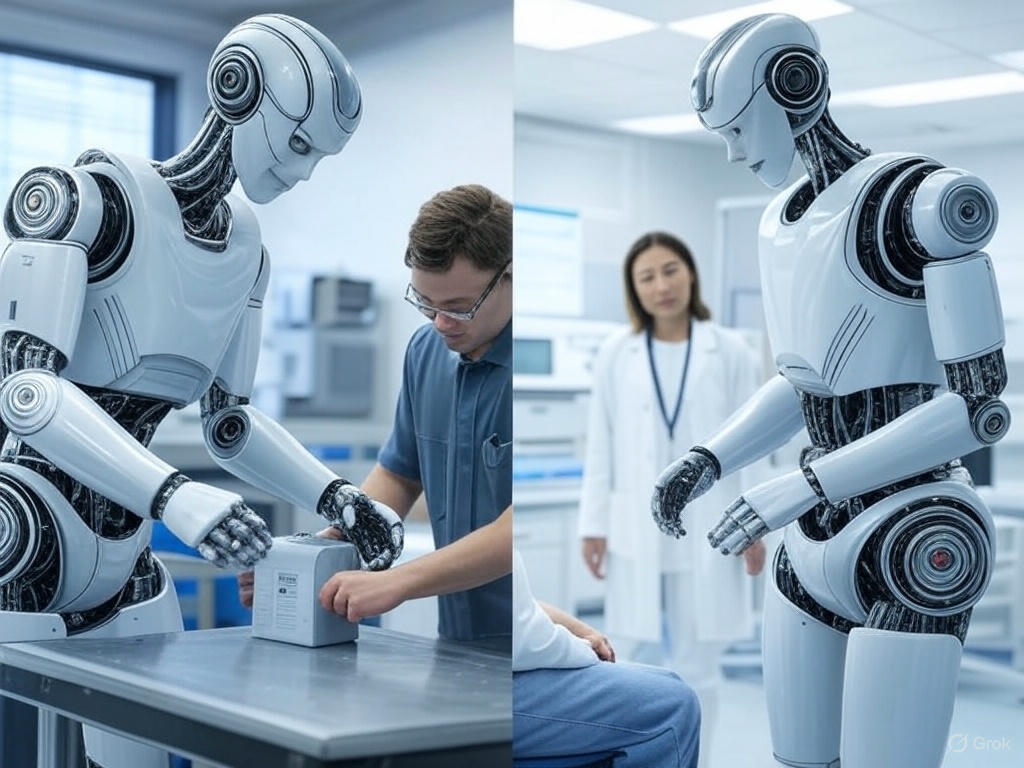ENABLING
Resilient Human-Robot Collaboration in Mixed-Skill Environments

Motivation
Resilient and collaborative robotic systems are a key technology in flexible intelligent production, logistics and medicine, which can lead to closely interlinked and potential-oriented cooperation with humans in the sense of complementary skills, but can also be used to substitute tasks and skills. The ENABLING project addresses the problem area of developing AI methods to complement the skills of robots and humans. It thus enables research innovations in the cross-sectional areas of IT and key enabling technologies and forms the basis for future applications in a mixed-skill environment in the lead markets. These include (1) cooperation between humans and robots in production or logistics and (2) monitoring applications in medicine, (3) intelligent assistance for preventive healthcare and therapies. The zones for interaction between humans and mobile robotic systems form complex mixed-skill environments. This is where intelligent, resilient collaboration becomes crucial, but is subject to strict requirements in terms of efficiency and safety measures as well as trustworthiness and acceptance.
Goals
ENABLING is characterized by an innovative approach to a known problem of robotic systems using AI methods. The aim is to develop a resilient hybrid system with two application examples of the production cell and automatic gaze diagnostics as an assistance system that relieves workers and medical professionals of routine tasks. These applications demonstrate complex mixed-skill environments. There is no known competitor product and existing systems are only suitable for limited applications and cannot be used directly. The objectives of ENABLING can be extended to a wide range of applications, e.g. in logistics or for monitoring systems to record a variety of health conditions (robot assistance as a companion for people suffering from dementia in everyday situations).
The project is funded by the European Regional Development Fund (ERDF) under grant No. ZS/2023/12/182056 and is planned with a project duration of 4 years (2024 to 2027).
